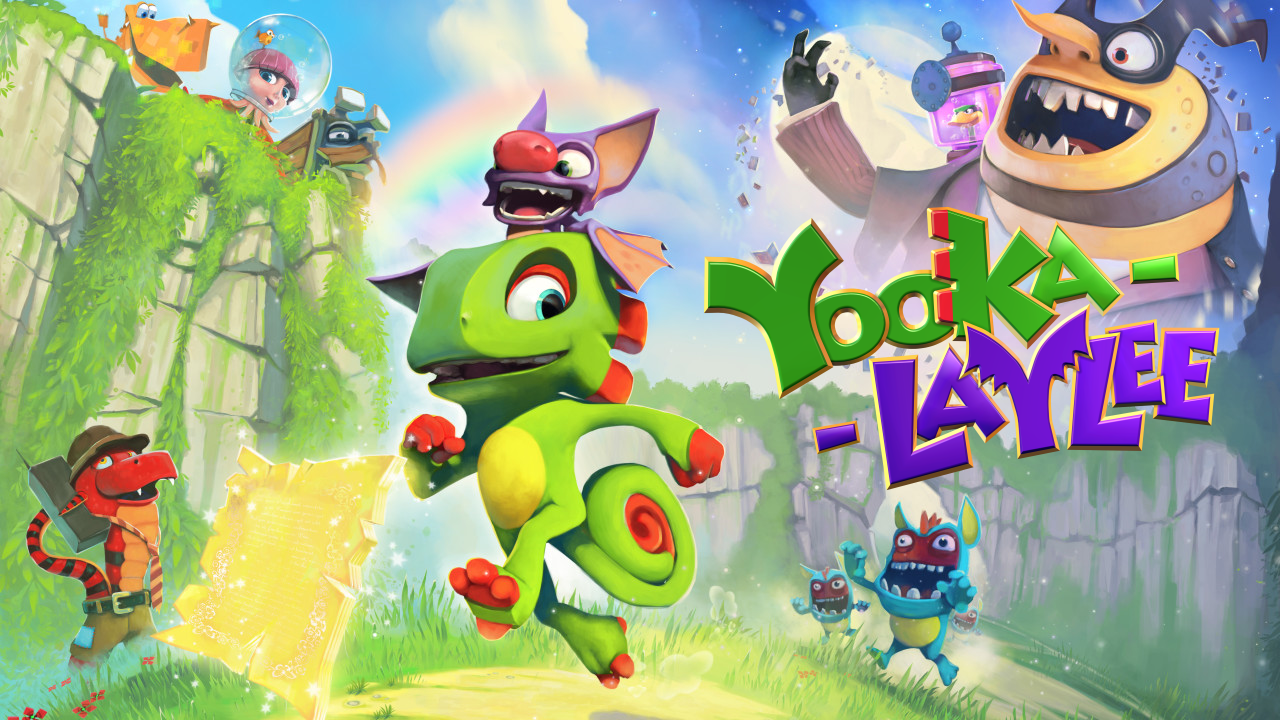Yooka-Laylee: Worth the hype?
The game Yooka-Laylee, developed by Playtonic Studios, is doing its fair share of dividing audiences across the Internet. Reviewers everywhere like to express wildly different opinions, as is the case with video game journalism, but with Yooka-Laylee, the reception is either referring to it as a true classic or an abomination that cannot be salvaged.
Yooka-Laylee is a spiritual successor to classic Nintendo 64 titles developed by Rare (a British video game company, formerly a second party of Nintendo before being bought out by Microsoft in 2002). Such classics include Banjo-Kazooie, Banjo-Tooie, Donkey Kong 64, and Conker’s Bad Fur Day – the four games that nobody ever stops gushing over when talking about the Nintendo 64 console. These games were all 3D platformers, a genre where the main idea is that your character can wander freely through huge worlds, exploring and searching for special items.
In the case of the Banjo games, these special items were called Jiggies. You collect them, and the more you collect the more worlds you can unlock. Yooka-Laylee’s equivalent of these items are called Pagies. Of course, these similarities are intentional. The games mentioned above are incredibly well received games and all have the fun gameplay and quirky, sometimes inappropriate British humor that Rare was known for, and Playtonic has aimed to emulate that.
At least Playtonic is in the right to make Yooka-Laylee – the company is entirely made up of former Rare employees, all of which had a hand in making the games mentioned above, just to name a few, that made Rare famous.
As the game approached its mid-April release date, more and more people were getting anxious. Would Yooka-Laylee be the “Banjo-Threeie” fans have been waiting for? The hype generated by the game from those people was blistering, and as a result, caused a problem that has plagued not just the video game industry, but also the entertainment industry in general: overhype.
The game had fair beginnings – it started out as a Kickstarter campaign that opened in early 2014. The amount being asked for was fairly hefty for an independently developed game – 175,000 British pounds, or roughly $226,300, but the results were incredible. In just 45 minutes, the amount was met, with every stretch goal shortly following suit, making it one of the most successful Kickstarter campaigns ever. In the end, it finished with an amazing 2,090,104 pounds, or roughly $2.7 million.
Alas, the praise started to die down. Tastes and perspectives in gaming have changed massively in the 19 years since the release of Banjo-Kazooie. As pre-release review copies were sent out to reviewers and critics, negative and below-average scores started to trickle in. It got to a point where I witnessed longtime supporters of the project drop interest in the game completely. As someone who has been looking forward to the game since the day the Kickstarter for it began, I was very saddened to see these reviews. Many of them, I saw, seemed to be quite ignorant of the very purpose of the game – a spiritual successor to the Banjo games.
Playtonic promised that, and they delivered. They knew it is what fans of those classic games wanted. They don’t deny it, nor do the fans of the game: it’s a carbon copy of the gameplay, art style, humor, and world design the Banjo games had. And Yooka-Laylee is exactly that. It achieved its goal in a spectacular way, and whether or not reviews state this is a matter of opinion, but one thing needs to be made clear to people. If a game looks good to you, play it. Don’t take reviews at face value and just write off the game because they said you shouldn’t play it. Try the game for yourself. Think about it – the success of Yooka-Laylee will be a telltale sign of future projects like this one. If more companies want to step up and do what Playtonic has achieved, these projects need to be supported. Show these people that you want more.
I dove into Yooka-Laylee with an open and very excited mind, and I was never let down. The game consistently impressed me with its similarities to the Banjo games. It was all there – the comedy, the character designs, the worlds, the dialogue, the abilities, collectables – it’s all there and accounted for, just as they were in the games it takes so much from. Yooka, the male protagonist, is just a chameleon form of Banjo, the male protagonist of the Banjo games. Laylee, the female protagonist, is just a bat form of Kazooie, the female protagonist of the Banjo games. If there are companies out there that want to create nostalgia dream lands like Yooka-Laylee, show you care by giving them some money. It’s important if you want this medium of game creation to continue.













